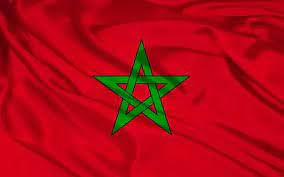A Complex
Relationship: Understanding the Historical Tensions Between Morocco and Algeria
Introduction
The relationship between Morocco and Algeria, two neighboring North African countries, has been marked by historical tensions and geopolitical complexities. While both nations share cultural and historical ties, their relations have been strained by a variety of factors, including disputes over territory, differing political ideologies, and the ongoing issue of Western Sahara. In this article, we delve into the historical backdrop, the key points of contention, and the prospects for improved relations between Morocco and Algeria.
Historical Background
1.
Colonial
Legacies: Both Morocco and Algeria were subjected to colonial
rule. Morocco was a French and Spanish protectorate, while Algeria endured a
brutal colonization by France. These colonial legacies have influenced their
modern political and social structures.
2.
Independence
and Ideological Differences: Morocco and Algeria gained
independence in the mid-20th century, with Morocco gaining sovereignty in 1956,
and Algeria in 1962. However, their differing paths to independence and
ideological orientations contributed to early tensions. Morocco's monarchy
coexisted with modern institutions, while Algeria became a single-party
socialist state.
3.
Border
Disputes: One of the primary sources of tension between the two
nations is a long-standing border dispute. The border issue, including the
situation of the town of Tindouf, has been a persistent point of contention.
The Western
Sahara Conflict
The most prominent and longstanding issue between Morocco and Algeria is the conflict over Western Sahara, a region located between the two countries. The conflict has its roots in the decolonization process and the withdrawal of Spain from Western Sahara in
1976. Both Morocco and the Polisario Front, a Sahrawi rebel national liberation movement backed by Algeria, laid territorial claims to the region.
1.
Moroccan
Claim: Morocco has asserted its historical claim to Western
Sahara and has proposed a degree of autonomy for the region under its
sovereignty. It has administered the region since the 1970s, which the
international community has not recognized.
2.
Algerian
Support for the Polisario Front: Algeria has been a staunch
supporter of the Polisario Front, providing diplomatic, political, and
logistical support. The Polisario Front advocates for the self-determination of
the Sahrawi people in Western Sahara.
3.
Stalemate and
UN Involvement: The Western Sahara conflict has remained in a
stalemate for decades, with numerous UN-led peace initiatives and negotiations.
The UN has sought to hold a referendum for self-determination, but the process
has been consistently delayed.
Regional Geopolitical Factors
1. Cold War Legacy: During the
Cold War, Morocco aligned with the West, while Algeria maintained a non-aligned
stance. This ideological
difference had an impact on their relationship.
2.
Sahel
Security Concerns: In recent years, both countries have
faced challenges from regional security threats, including terrorism and
extremism. This has led to some cooperation in the realm of security, but
underlying tensions persist.
Prospects for
Improved Relations
While the
historical tensions and the Western Sahara conflict have strained relations
between Morocco and Algeria, there are some signs of potential reconciliation
and cooperation.
1.
Economic
Integration: Economic cooperation, including the potential
reopening of borders, could foster better relations. The Maghreb Union, which
includes both countries, has the potential to be a significant economic bloc.
2.
People-to-People
Diplomacy: Grassroots initiatives, including cultural and
educational exchanges, can contribute to people-to-people diplomacy and help
build bridges between the two nations.
3.
International
Diplomacy: International actors, including the United Nations,
could play a more active role in facilitating a resolution to the Western
Sahara conflict. Increased diplomatic pressure may encourage both parties to
engage constructively.
4.
Security
Collaboration: Collaboration on regional security challenges,
particularly in the Sahel, can serve as a common interest that brings the two
nations closer.
Conclusion
The complex
relationship between Morocco and Algeria is marked by historical tensions and
the persistent issue of Western Sahara. While these tensions have hindered
cooperation and mutual trust, there are opportunities for both nations to
pursue a path of reconciliation and collaboration. Economic integration,
people-to-people diplomacy, international mediation, and security cooperation
offer potential avenues for improvement. The future of Morocco-Algeria
relations remains uncertain, but the prospect of a more harmonious relationship
holds promise for both nations and the broader Maghreb region.









No comments:
Post a Comment